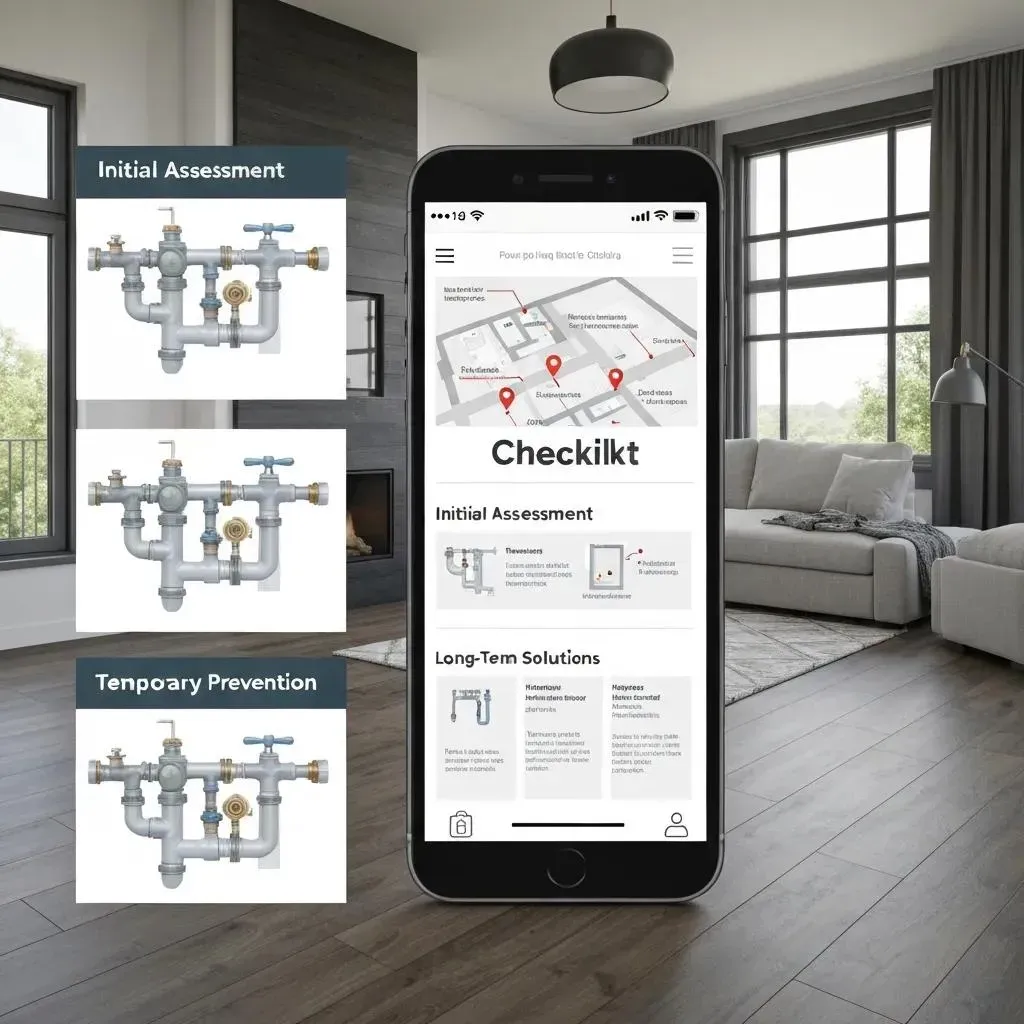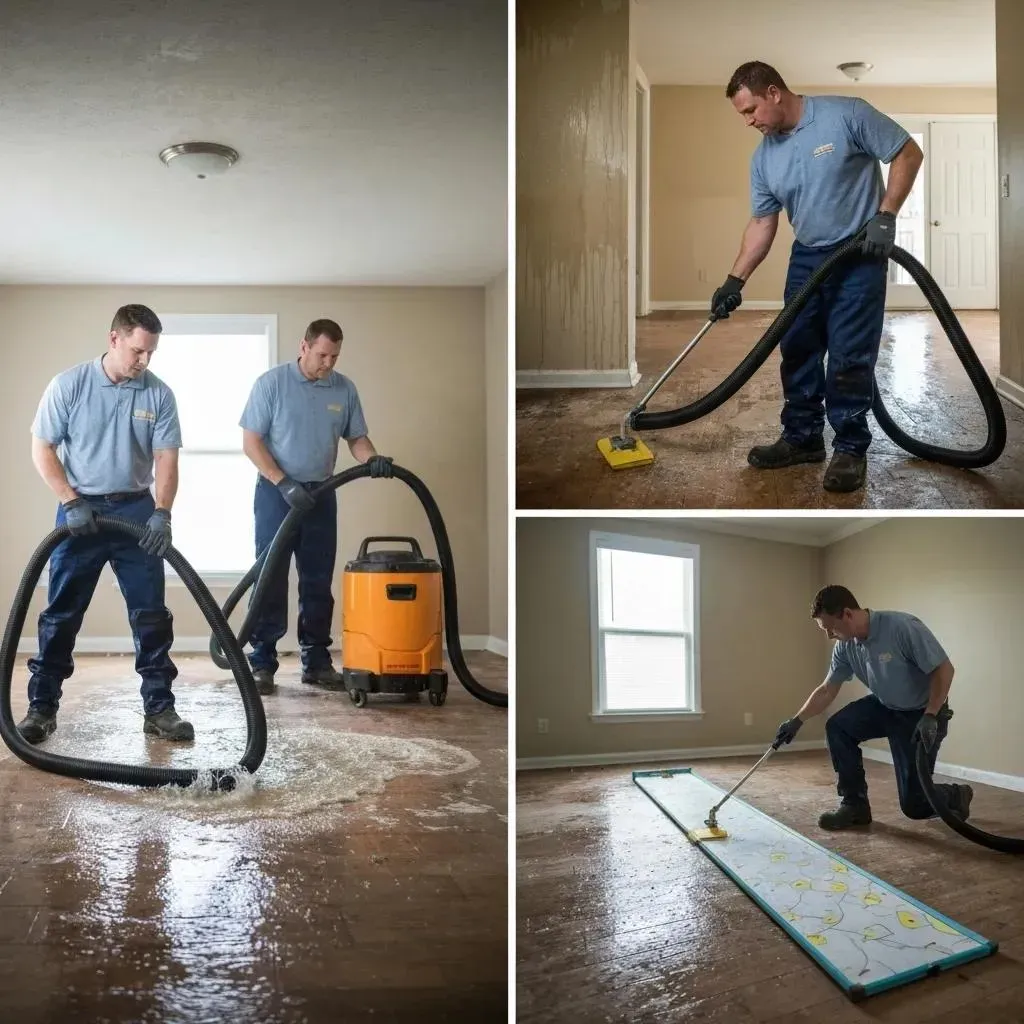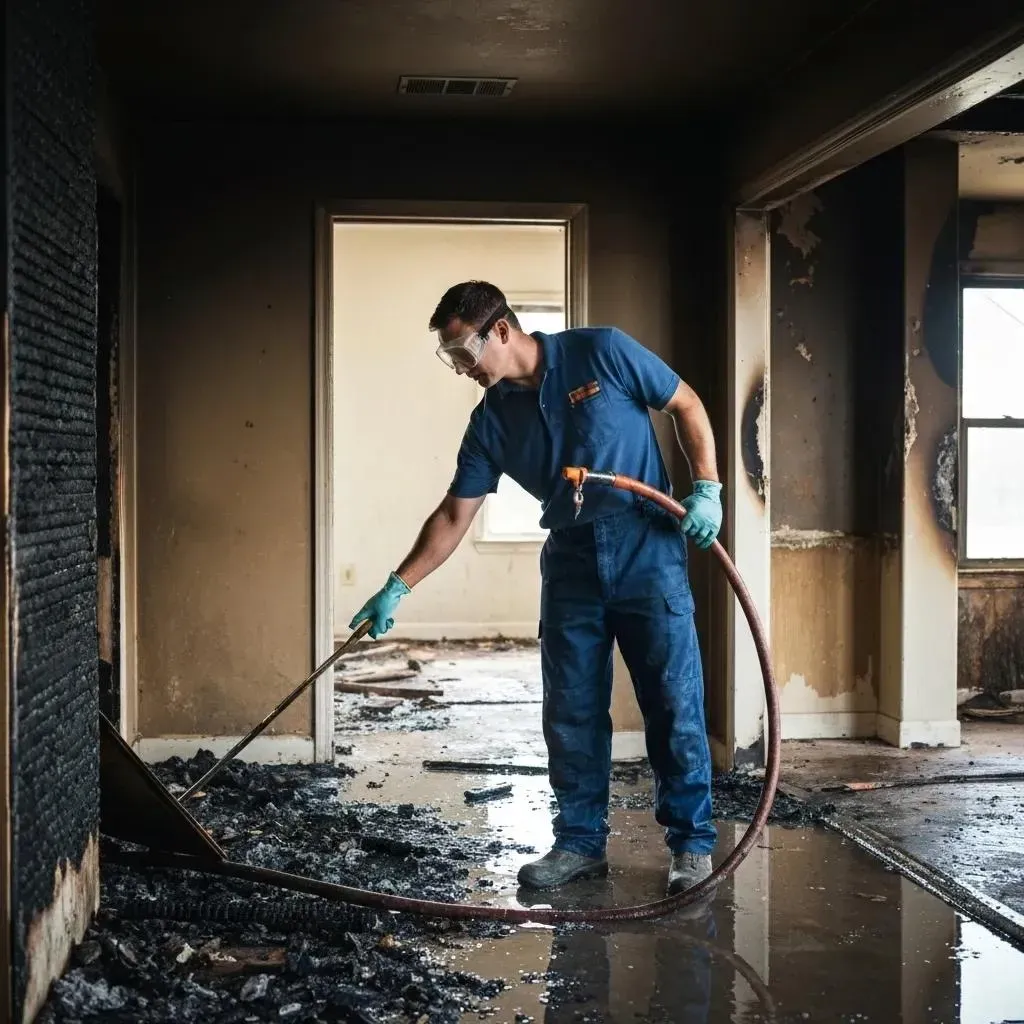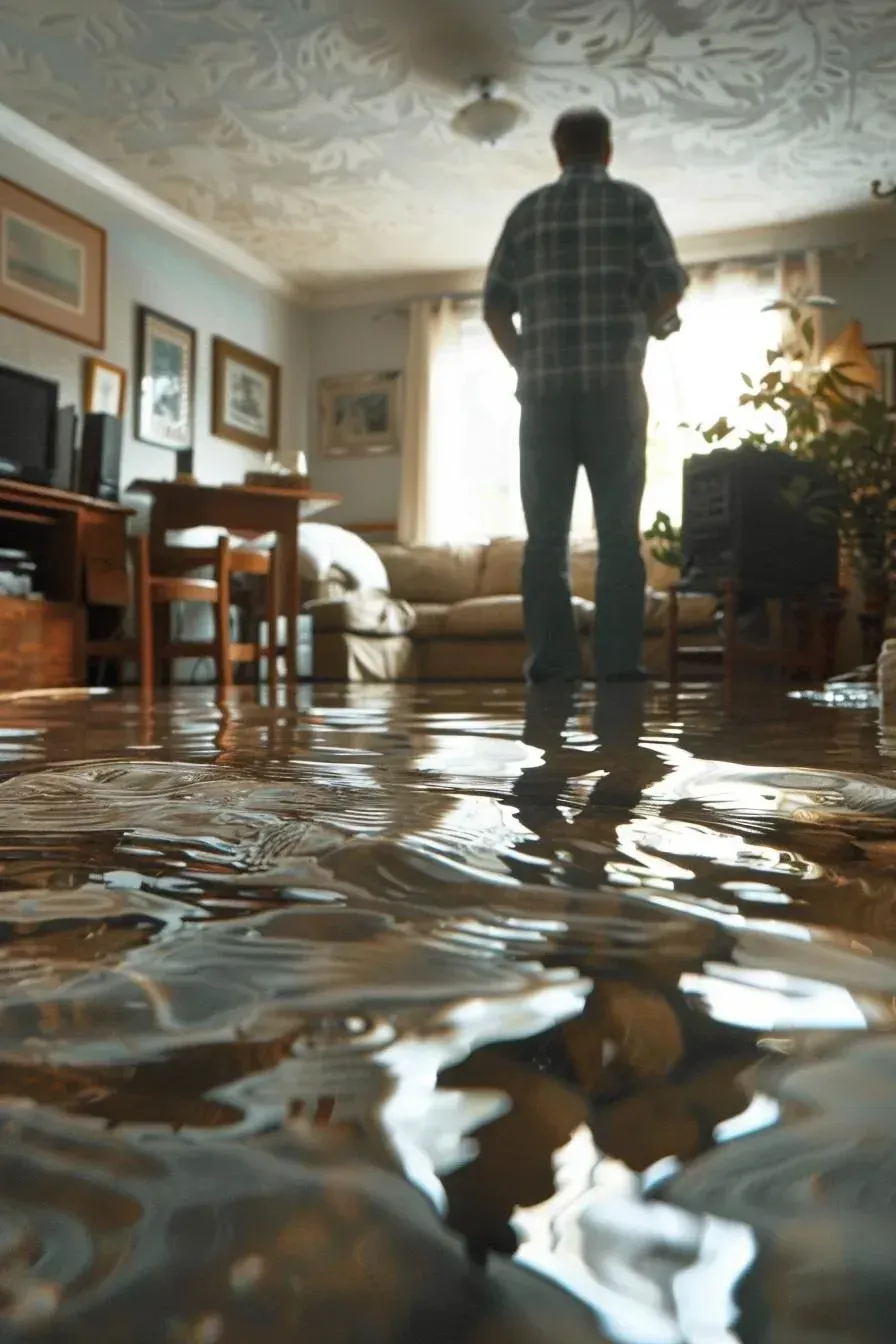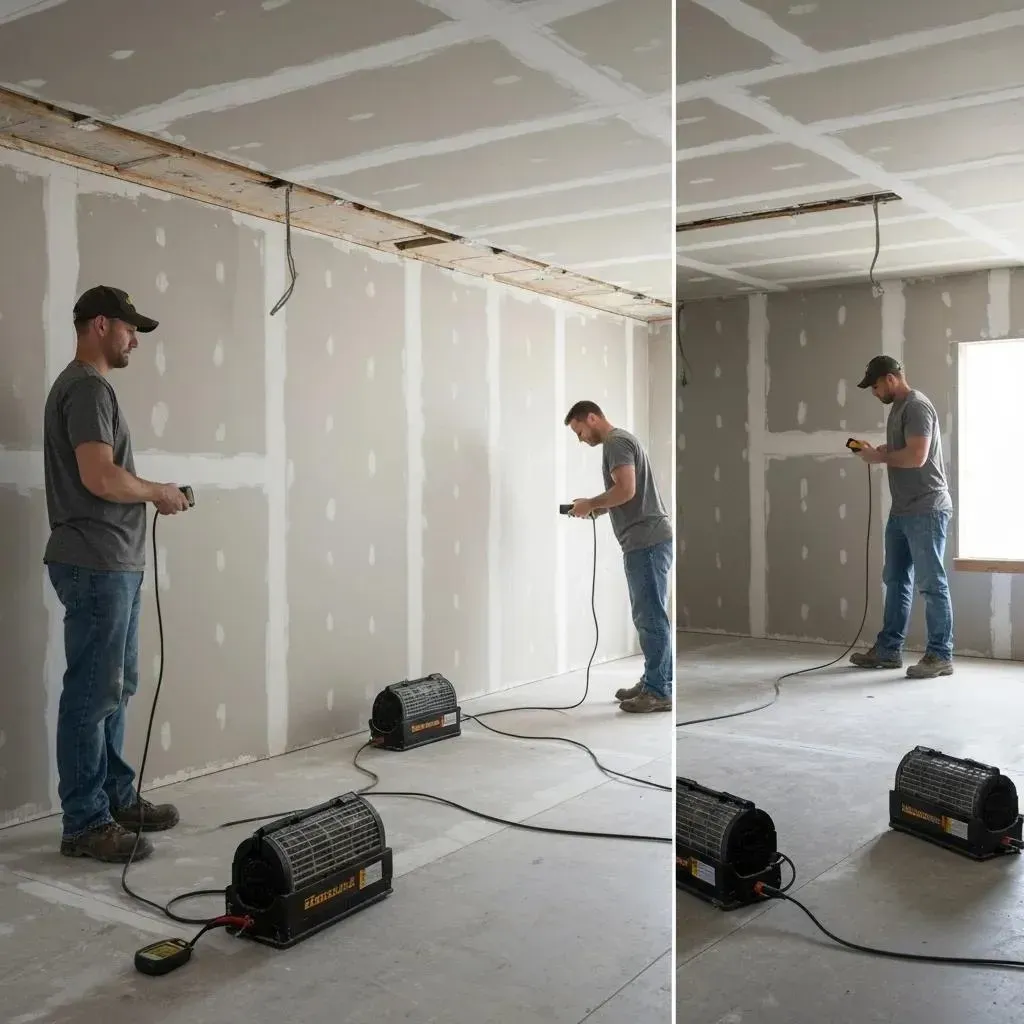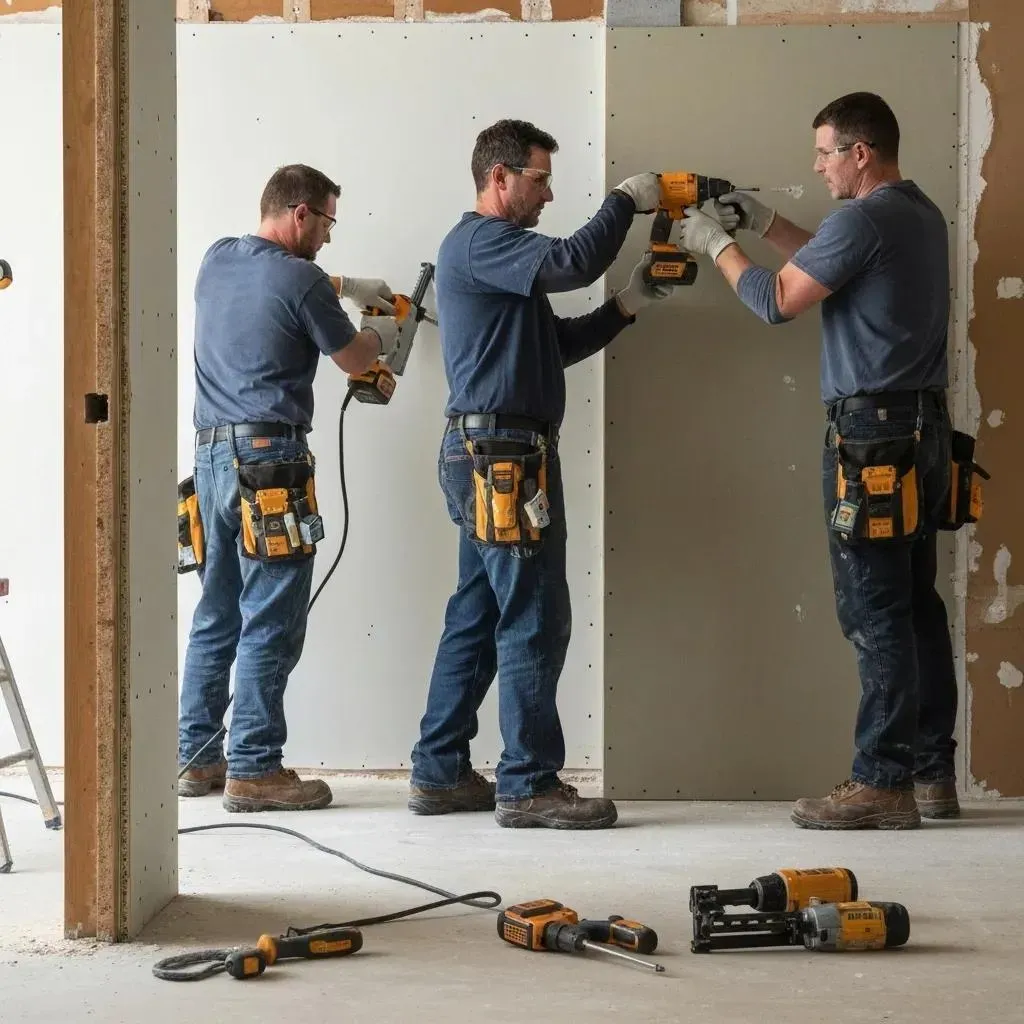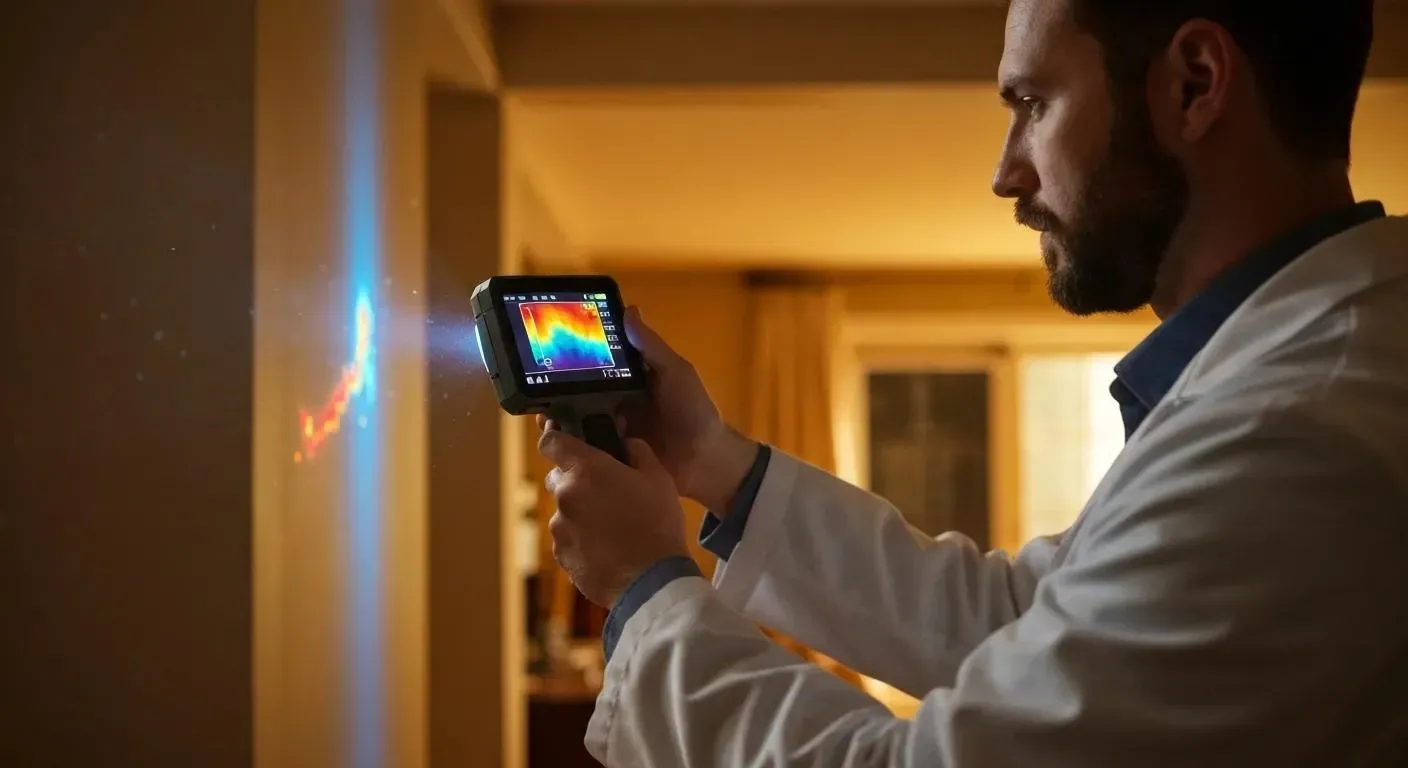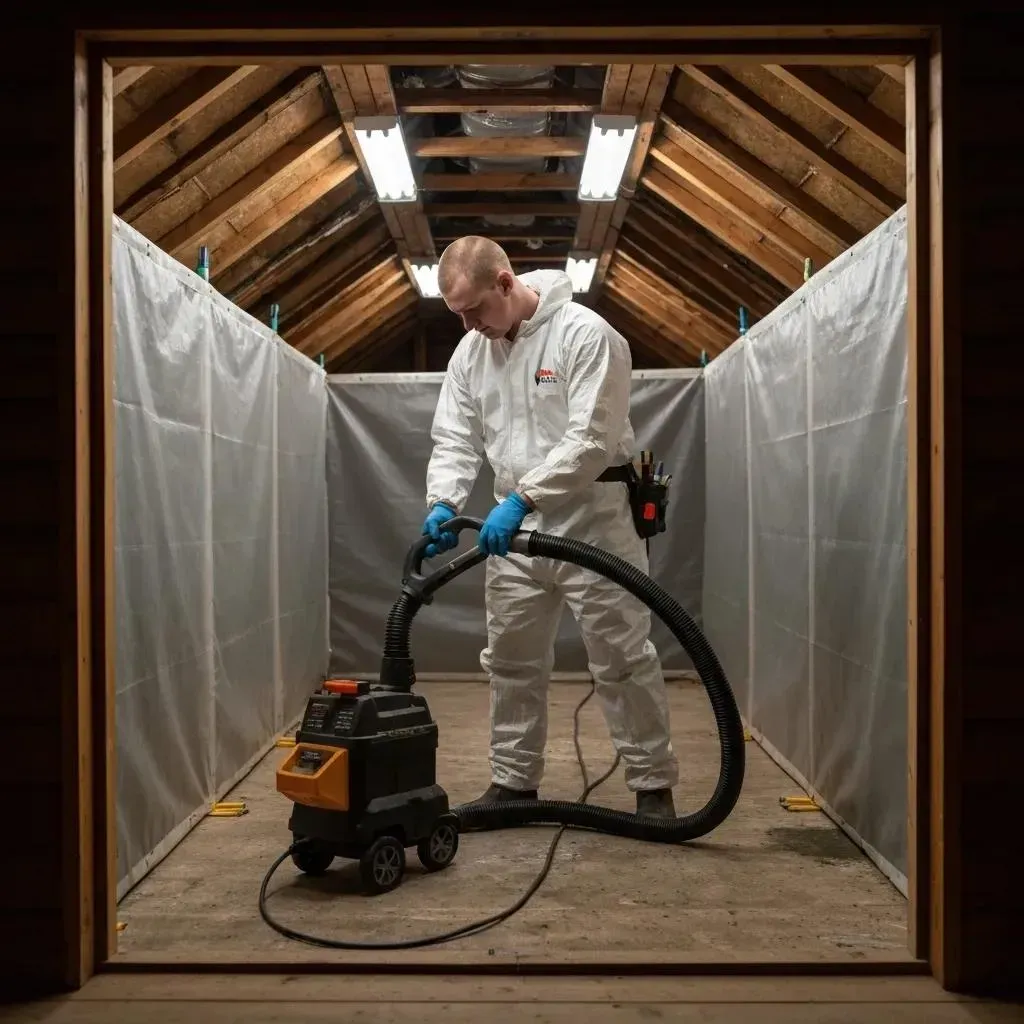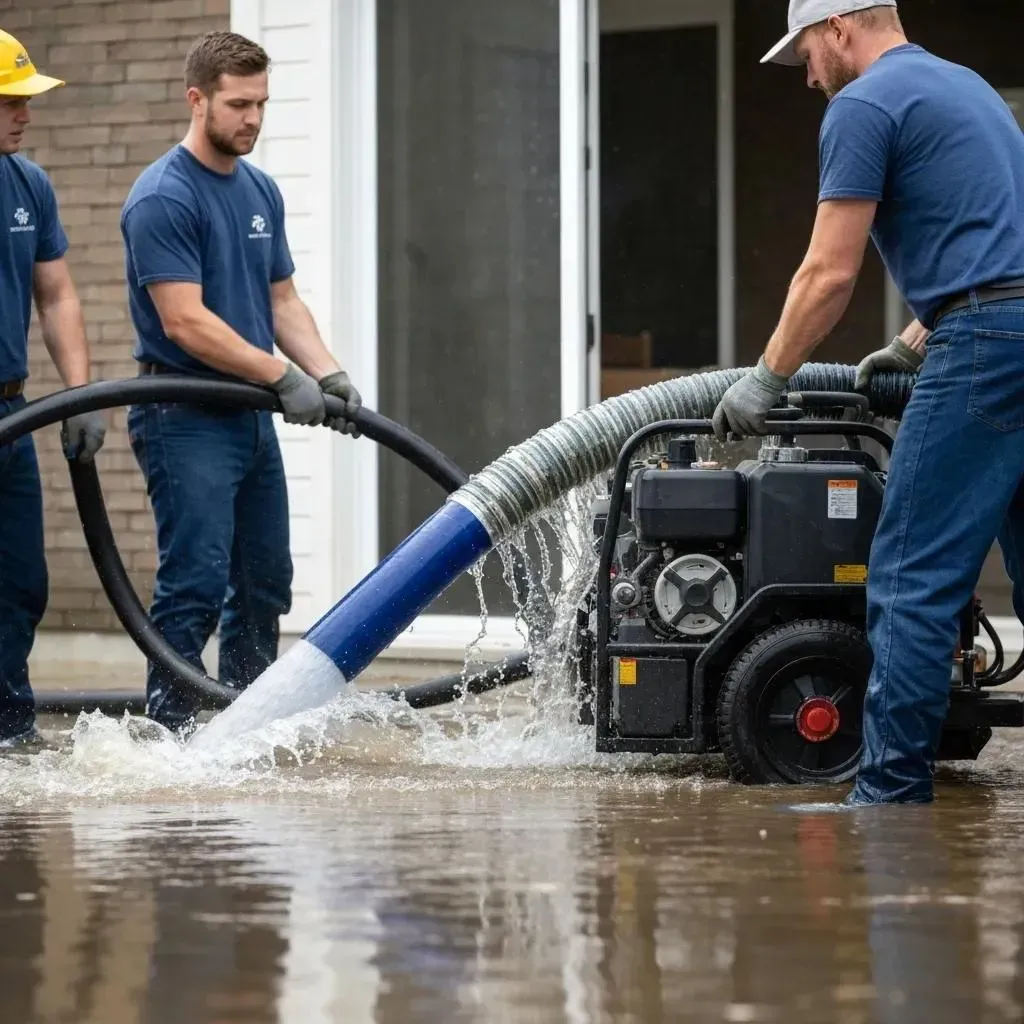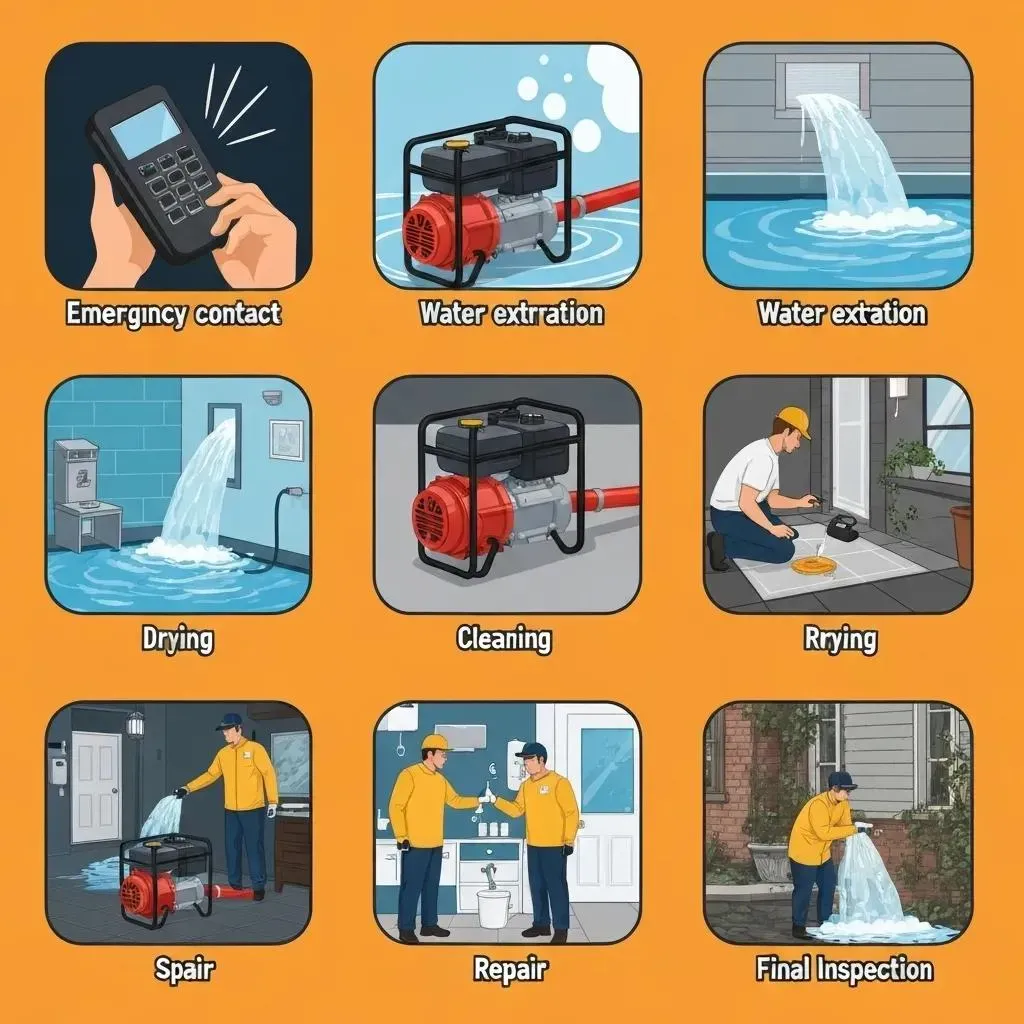Blog
Why Mold Testing is a Mile-High Priority

Denver mold test service options are more critical than you might think, even in Colorado's famously dry climate. Here's what you need to know:
Top Denver Mold Testing Services Include:
- Air sampling- Detects hidden mold spores in your home's air
- Surface sampling- Identifies visible mold growth and species
- Moisture detection- Uses thermal imaging to find water sources
- Lab analysis- Provides detailed reports within 24-48 hours
- Professional inspection- Certified experts assess your entire property
Despite Denver's arid outdoor conditions, over 60% of basements experience moisture seepage, and 38% develop mold growth due to common indoor moisture sources. Plumbing leaks, poor exterior drainage, and rapid snowmelt create perfect conditions for mold to thrive behind walls, in crawlspaces, and other hidden areas.
The health risks are real. Mold exposure can trigger respiratory problems, allergies, and more serious conditions - especially for children, elderly family members, and those with compromised immune systems. Property damage is equally concerning, as unchecked mold can destroy building materials and significantly impact your home's value.
Professional testing is your first line of defense. Unlike DIY kits that often provide misleading results, certified mold inspectors use advanced equipment and accredited laboratories to give you accurate, actionable information about your home's air quality.
I'm Mike Martinez, owner of Accountable Home Services, and I've helped hundreds of Denver families steer mold concerns through professional denver mold test service and comprehensive remediation solutions. My team understands that mold testing isn't just about identifying a problem - it's about protecting your family's health and your property investment with reliable, scientific results.

Spotting the Signs: When to Schedule a Mold Test in Your Denver Home
Your senses are often your best early warning system when it comes to mold detection. I've been helping Denver families for years, and I can tell you that the homeowners who catch problems early save themselves thousands in remediation costs and protect their family's health in the process.
Trust what you can see. Visible discoloration on walls, ceilings, or baseboards isn't just cosmetic - it's often your first clue that moisture has created perfect conditions for mold growth. Those dark spots around windows, peeling paint that seems to bubble up for no reason, or mysterious staining that appears after Colorado's intense storms all deserve immediate attention.
Your nose knows more than you think. That distinctive musty, earthy odor isn't something to ignore or mask with air fresheners. When you smell that unmistakable scent, mold spores are actively reproducing somewhere in your home, even if they're hidden behind walls or in crawlspaces. These unexplained smells are especially concerning in basements, bathrooms, or anywhere near plumbing.
Recent water damage creates urgent situations. Any time water gets where it shouldn't be, you're looking at potential mold growth within 24-48 hours. I always recommend denver mold test service after pipe leaks, basement flooding from our surprise summer storms, or when appliances malfunction and leak water across your floors. Even minor incidents can create major problems if moisture seeps into building materials.

High-humidity areas need special attention. Denver's extreme weather swings create unique challenges - rapid temperature changes can cause condensation in unexpected places, and our heating systems can actually circulate mold spores throughout your home during winter months.
Health symptoms shouldn't be dismissed. When family members experience unexplained allergies, persistent respiratory issues, or asthma symptoms that seem worse at home, mold exposure could be the hidden culprit. Children and elderly family members are particularly vulnerable to mold-related health problems, making early detection even more critical.
Common Mold Triggers in Denver Homes:
- Foundation drainage issues- Poor water management around your home's perimeter
- HVAC condensation- Moisture buildup in ductwork or around units
- Inadequate bathroom ventilation- Insufficient exhaust fans
- Crawlspace humidity- Enclosed spaces with poor air circulation
- Ice dam formation- Winter roof problems causing interior leaks
- Rapid snowmelt- Colorado's quick temperature changes
Peace of mind matters too. Even without obvious warning signs, many Denver homeowners choose professional testing, especially during real estate transactions. There's wisdom in knowing for certain rather than wondering, and early detection prevents minor moisture issues from becoming major mold problems.
Winter is actually an ideal time for testing since heating systems can distribute spores throughout your home. Start The New Year Mold Free Schedule A Winter Mold Inspection - it's one of the smartest investments you can make in your family's health and your property's value.
If you're questioning whether you need testing, trust that instinct. It's always better to know for certain than to let a small problem become a big one.
Understanding Your Options: A Guide to Denver Mold Test Service Methods
Professional denver mold test service isn’t one-size-fits-all. The goal is to reveal every place mold might hide, then give you clear data you can act on—nothing more, nothing less.

Below is a streamlined look at the three core testing approaches and the tech that makes them accurate.
Air Sampling: A Snapshot of What You Breathe
- Captures airborne spores that are invisible to the eye.
- Always includes an outdoor control sample to show what “normal” looks like.
- Spore-trap analysis(non-viable) delivers results in 24–48 hours so you know quickly if indoor counts are high enough to warrant action.
- Ideal for uncovering hidden mold inside walls, under floors, or in HVAC systems long before you see stains.
Surface & Bulk Sampling: Zeroing In on Visible Growth
- Swabs or tape lifts confirm whether discolored spots are really mold and identify the exact species.
- Bulk sampling—sending a small piece of drywall or insulation to the lab—helps when contamination looks extensive.
- Species ID matters: some molds are simply allergens, while others (like certain Stachybotrys strains) demand tight containment and specialized cleanup.
- Pairing surface samples with air samples paints the fullest picture.
If you already see growth, these quick tips on How To Remove Black Mold In Denver With These Easy Tips can help you understand next steps—though sizable outbreaks still require pros.
Advanced Detection: Finding Moisture Before Mold Blooms
- Moisture meters pinpoint damp building materials without drilling holes.
- Infrared cameras locate temperature differences that suggest concealed leaks—all without tearing out walls.
- By following "moisture trails," we stop problems at the source so they don’t return.
Together, these methods form a layered approach: air tells us how much , surface tells us what kind , and advanced tools tell us where and why. That’s the level of insight you need to protect both health and property.
The Professional Process: From Scheduling to Scientific Report
When you're ready to move forward with professional mold testing, understanding the process helps you prepare and know what to expect. We've streamlined our approach over the years to make it as straightforward as possible while ensuring nothing gets overlooked.
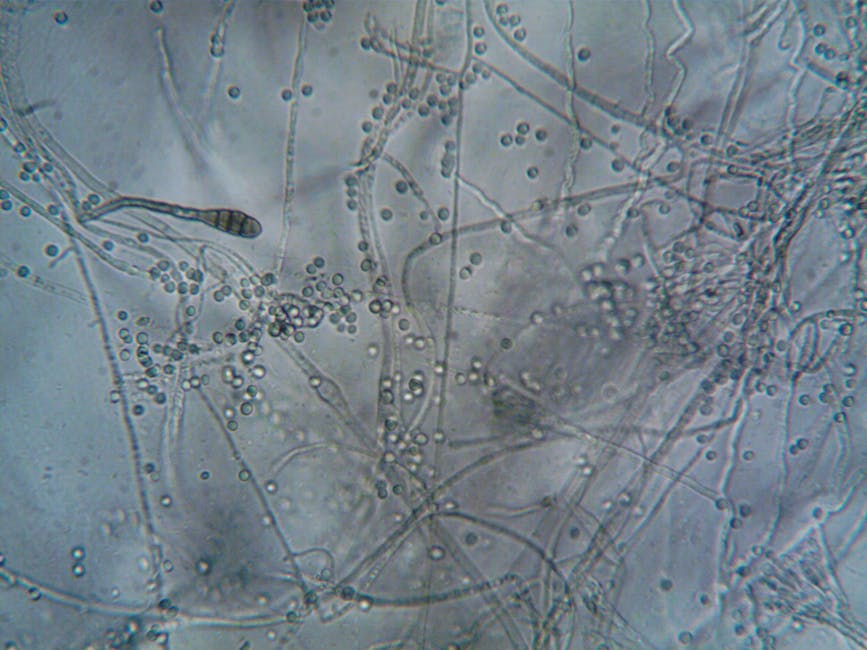
The journey from your first phone call to receiving your detailed scientific report typically takes just a few days, but the peace of mind it provides can last for years. Here's exactly how it works.
Step 1: The Initial Consultation and Scheduling
Your denver mold test service experience begins with a conversation, not a sales pitch. When you call, we want to understand your specific situation before we ever set foot in your home.
We'll ask about your concerns- what prompted you to consider testing in the first place. Maybe you noticed a musty smell in the basement, or perhaps you're dealing with unexplained allergy symptoms. Sometimes it's as simple as wanting peace of mind after a recent water leak.
Gathering property information helps us prepare for the inspection. Your home's age, construction type, and any known moisture issues give us valuable context. We're not just showing up with a one-size-fits-all approach - we're tailoring our testing strategy to your unique situation.
Setting realistic expectations is crucial. We explain what testing can tell you (whether you have a mold problem and how extensive it is) and what it can't do (magically fix the problem). This honesty upfront prevents disappointment later and helps you make informed decisions.
Understanding the process means no surprises. We walk you through each step, explain how long everything takes, and answer any questions you might have. By the time we schedule your appointment, you'll know exactly what to expect.
Step 2: The On-Site Visual Inspection and Sampling
Our certified technicians arrive with professional equipment and immediately begin what we call a comprehensive visual assessment. This isn't a quick walk-through - we're detective work, looking for clues about moisture intrusion, building material damage, and conditions that might be promoting mold growth.
We examine every accessible area of your home, paying special attention to HVAC systems, plumbing fixtures, basements, crawlspaces, and attics. Windows, doors, and potential leak sources get scrutinized too. We're looking at building materials and structural elements with trained eyes that spot problems most people miss.
Strategic sample collection follows our visual inspection. Based on what we find and your specific concerns, we collect samples from the most relevant locations. This might include indoor air samples from multiple rooms, outdoor control samples for comparison, and surface samples from any suspected growth areas.
Using professional detection tools sets us apart from DIY approaches. Our moisture meters and thermal imaging equipment help identify problem areas that aren't visible to the naked eye. We're following moisture trails and temperature variations that could indicate hidden mold issues.
Documenting everything creates a detailed record of our findings. We photograph suspected problem areas, note moisture readings, and create a comprehensive record that becomes part of your final report. This documentation also helps track any changes if you need follow-up testing later.
Our Mold Inspection service includes this thorough assessment because we believe in being comprehensive rather than cutting corners.
Step 3: Lab Analysis and Receiving Your Detailed Report
Your samples head to an accredited laboratory where certified microbiologists analyze them using advanced techniques. This professional analysis is what separates legitimate testing from DIY kits that often provide misleading results.
The laboratories we work with meet strict accreditation standards and use calibrated equipment following established protocols. These aren't fly-by-night operations - they're facilities that stake their reputation on accurate, reliable results.
Results typically come back within 24-48 hours, though we'll give you a realistic timeframe based on current lab schedules. We know waiting for results can be stressful, so we keep you informed about timing throughout the process.
Your detailed report includes both technical data and plain-language explanations. You'll see specific mold species identified, spore concentrations and counts, and comparisons to outdoor control samples. Most importantly, you'll understand what these numbers mean for your home and family's health.
Actionable recommendations are what make professional reports valuable. We don't just tell you what we found - we explain what to do about it. Whether that's addressing moisture sources, improving ventilation, or proceeding with professional remediation, you'll have clear guidance for next steps.
Plain-language interpretation ensures you're not left scratching your head over technical jargon. We explain the results in terms that make sense, so you can make informed decisions about your home's health and safety.
Choosing Wisely: What to Look for in a Denver Mold Testing Professional

Selecting the right expert determines whether you’ll get rock-solid answers or a stack of confusing paperwork.
Certifications and Qualifications: Demand Verified Expertise
- Look for IICRC or ACAC credentials; they prove formal training and ethics.
- A Council-Certified Microbial Consultant (CMC) indicates advanced knowledge of mold biology and testing.
- Local experience matters. Denver’s altitude, rapid temperature swings, and snowmelt create moisture challenges outsiders often miss.
- Confirm ongoing education—methods and equipment evolve quickly.
Our own technicians keep their Certified Mold Inspector Near Me status current so you always get the latest best practices.
The Importance of Unbiased, Professional Testing
- Your inspector should have no financial stake in remediation decisions. Data first, solutions second.
- Accredited labs and standardized protocols protect scientific integrity.
- Transparent reporting—clear language, photos, and numbered spore counts—lets you make informed choices without a biology degree.
Understanding the Cost of a Denver Mold Test Service
Several factors influence price:
- Home size & complexity – more rooms mean more samples.
- Number and type of samples – air‐only vs. air + surface + bulk.
- Lab fees & reporting – accredited microbiologists aren’t free, but their accuracy saves money long-term.
Think of testing as preventive medicine: catching issues early is far cheaper than major remediation or health bills later. For perspective on cleanup costs, see Denver S Mold Remediation What You Need To Know.
Bottom line: hire certified, local, and test-only professionals who back findings with clear, independent lab data. That’s the fastest path to peace of mind.
Frequently Asked Questions about Mold Testing in Denver
Is mold really a problem in Denver's dry climate?
This is probably the most common question we hear from Denver homeowners, and I understand why. When you step outside and feel that crisp, dry Colorado air, it's hard to imagine mold could be thriving inside your home.
But here's the reality: Denver homes are absolutely not immune to mold problems. While our outdoor air stays dry most of the year, the conditions inside your home can be completely different. We've finded significant mold growth in homes throughout the Denver Metro Area - from Broomfield to Boulder, Westminster to Thornton - because mold doesn't care about outdoor humidity levels.
What matters for mold growth is what's happening inside your walls, under your floors, and in your basement. Common moisture sources like plumbing leaks, poor drainage around your foundation, and rapid snowmelt create perfect conditions for mold to flourish, regardless of how dry it is outside.
I've personally inspected hundreds of Denver homes where homeowners were shocked to find mold problems. The dry climate actually creates a false sense of security that can make these issues even more dangerous because they go undetected longer.
Can I use a DIY mold test kit from a hardware store?
I wish I could tell you those $20 kits from the hardware store would give you reliable answers, but I'd be doing you a disservice. DIY kits are not recommended because they often provide inaccurate or misleading results that can actually make your situation worse.
Here's why professional denver mold test service is so much more effective: those DIY kits can't identify where the problem is located or how extensive it might be. Even if they detect mold spores (which are naturally present everywhere), they can't tell you whether the levels in your home are actually problematic.
Professional testing includes outdoor control samples that DIY kits simply cannot provide. Without this comparison, you have no way to know if your indoor levels are normal or concerning. We also use multiple sampling methods and strategic collection points based on our visual inspection - something a single DIY kit placed randomly in a room cannot accomplish.
The biggest problem with DIY kits is the lack of professional interpretation. Even if the results were accurate, they don't tell you what to do next. Should you be concerned about those results? Where should you look for the source? How do you create an effective plan to address any problems? These are questions that require professional expertise.
What happens if the test finds mold?
Take a deep breath - a positive test result isn't the end of the world. It's actually valuable information that helps protect your family and your property investment. I've guided hundreds of Denver families through this process, and while it's never fun to hear you have a mold problem, it's always better to know so you can address it properly.
The detailed report becomes your roadmap for moving forward. It shows exactly what types of mold were found, where the problems are located, and how severe the contamination is. This information is crucial for creating an effective remediation plan that addresses your specific situation.
Professional remediation involves safely containing and removing the mold while addressing the underlying moisture source to prevent it from coming back. The process follows strict protocols established by organizations like the IICRC to ensure your home is restored to a healthy condition without spreading contamination to clean areas.
We work directly with insurance companies to minimize your stress and out-of-pocket costs. Many homeowners are surprised to learn that their insurance covers mold remediation when it's caused by a covered peril like a pipe leak or storm damage.
The key is addressing the problem promptly and professionally. Mold doesn't get better on its own, and attempting DIY removal often makes the situation worse by spreading spores throughout your home.
Learn more about professional standards from the IICRC to understand the rigorous standards that guide professional mold remediation. Our Mold Remediation Services Denver follows these industry standards to ensure safe, effective results that protect your family and restore your home to a healthy condition.
Conclusion: Taking the Next Step for a Healthier Home
Your home should be your sanctuary, not a source of worry about invisible threats floating in the air. Professional denver mold test service gives you the peace of mind that comes from knowing exactly what you're breathing every day.
Throughout this guide, we've covered everything from spotting the early warning signs to understanding the sophisticated testing methods that separate amateur attempts from professional results. The truth is, Denver's unique climate creates surprising mold risks that many homeowners don't expect. Those rapid snowmelts, sudden temperature swings, and hidden moisture sources can turn any home into a breeding ground for mold - even in our famously dry climate.
The investment in professional testing pays dividends in ways you might not immediately consider. Early detection through proper testing often prevents minor moisture issues from becoming major remediation projects that cost thousands. More importantly, it protects your family's health by identifying problems before they trigger respiratory issues or worsen existing conditions.
When choosing a testing professional, certifications and experience matter tremendously. The difference between accurate results and misleading information often comes down to proper training, advanced equipment, and accredited laboratory analysis. DIY kits simply can't provide the comprehensive assessment your home deserves.
At Accountable Home Services, we've built our reputation on providing honest, thorough mold testing that gives Denver families the information they need to make informed decisions. Our certified technicians understand Colorado's unique building challenges and use the latest technology to ensure nothing gets missed. We serve homeowners throughout the Denver Metro Area - from Broomfield to Boulder, Westminster to Thornton- with the same commitment to accuracy and professionalism.
Your family's health and your property's value deserve professional protection. Whether you're dealing with mysterious odors, visible discoloration, or recent water damage, waiting only increases the risk and potential costs. Professional testing provides the roadmap for addressing problems effectively and safely.
Don't let uncertainty about your home's air quality keep you up at night. Schedule your comprehensive Denver mold test service today and take the first step toward the peace of mind that comes from knowing your home is truly healthy. We're here to help you breathe easier with reliable, professional testing services that put your family's wellbeing first.

